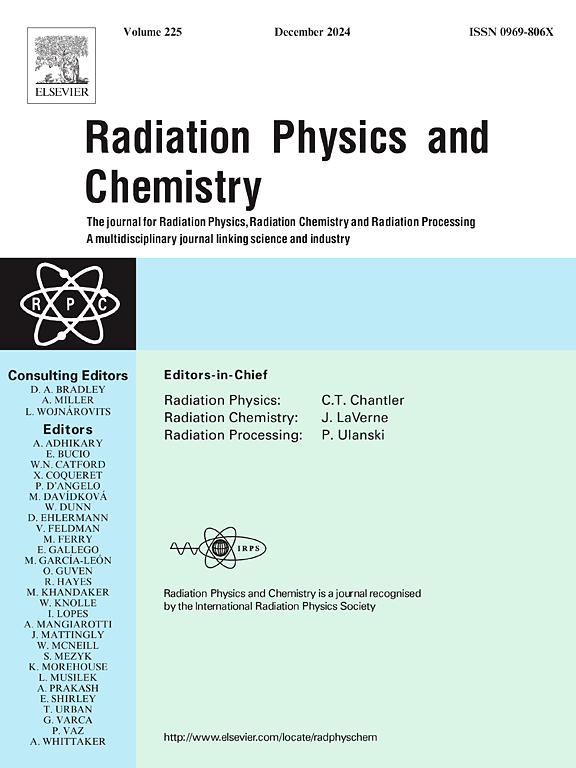电离辐照对合成煤化工废水生物降解特性的影响
IF 2.8
3区 物理与天体物理
Q3 CHEMISTRY, PHYSICAL
引用次数: 0
摘要
煤化工废水中含有大量难降解有机化合物,对环境构成严重威胁。本文提出了一种基于伽马辐照的预处理方法,以改善煤化工废水的生物降解特性。使用 60Co 伽马源对含有苯酚、对苯二酚、对甲酚和喹啉的样品进行辐照,吸收剂量为 20 kGy。结果表明,随着吸收剂量的增加,化学需氧量略有下降,而 BOD5/COD 比值则从 0.044 上升到 0.310,这表明伽马辐照显著提高了生物降解性。厌氧消化试验表明,初始浓度为 40、60 和 80 mg/L 的废水样品在 20 kGy 照射下的累积产气量与未照射样品相比分别增加了 161.78%、64.07% 和 35.51%。紫外光谱分析和红外光谱分析结果表明,辐照后废水样品中的醛类和酮类小分子有机物浓度增加,可生物降解的有机物增多。微生物菌落分析表明,在厌氧消化(AD)过程中,产甲烷古细菌发生了有益的变化,提高了厌氧发酵系统的稳定性。本文章由计算机程序翻译,如有差异,请以英文原文为准。
Effects of ionizing irradiation on biodegradation characteristics of synthetic coal chemical industry wastewater
Wastewater from the coal chemical industry contains large amounts of refractory organic compounds that pose a serious threat to the environment. This paper proposes a pre-treatment method based on gamma irradiation to improve the biodegradation characteristics of coal chemical industry wastewater. Samples containing phenol, hydroquinone, p-cresol, and quinoline were irradiated using 60Co gamma source at an absorbed dose of 20 kGy. The results showed that the chemical oxygen demand slightly decreased with increasing absorbed dose, whereas the BOD5/COD ratio increased from 0.044 to 0.310, indicating a significant enhancement in biodegradability induced by gamma irradiation. Anaerobic digestion tests showed that the cumulative gas production for wastewater samples with initial concentrations of 40, 60, and 80 mg/L increased by 161.78%, 64.07%, and 35.51%, respectively, at 20 kGy, compared to that for the unirradiated samples. The ultraviolet spectrum analysis and infrared spectrum analysis results showed that the concentrations of aldehyde and ketone small molecule organics increased, and there were more biodegradable organic substances in the wastewater samples after irradiation. Microbial colony analysis revealed beneficial changes in the methanogenic archaea during the Anaerobic digestion (AD) process and increased the stability of the anaerobic fermentation system.
求助全文
通过发布文献求助,成功后即可免费获取论文全文。
去求助
来源期刊

Radiation Physics and Chemistry
化学-核科学技术
CiteScore
5.60
自引率
17.20%
发文量
574
审稿时长
12 weeks
期刊介绍:
Radiation Physics and Chemistry is a multidisciplinary journal that provides a medium for publication of substantial and original papers, reviews, and short communications which focus on research and developments involving ionizing radiation in radiation physics, radiation chemistry and radiation processing.
The journal aims to publish papers with significance to an international audience, containing substantial novelty and scientific impact. The Editors reserve the rights to reject, with or without external review, papers that do not meet these criteria. This could include papers that are very similar to previous publications, only with changed target substrates, employed materials, analyzed sites and experimental methods, report results without presenting new insights and/or hypothesis testing, or do not focus on the radiation effects.
 求助内容:
求助内容: 应助结果提醒方式:
应助结果提醒方式:


